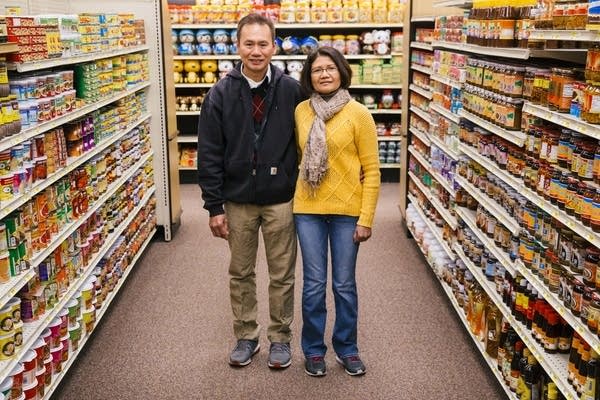Fufu and Frosted Flakes: St. Paul ethnic market moves beyond niche

Son and Ne Dao stand for a portrait inside the second Ha Tien Market in east St. Paul earlier this month. The couple opened their second store in November 2016 inside a building formerly home to a Lunds and Byerly's.
Evan Frost | MPR News
Go Deeper.
Create an account or log in to save stories.
Like this?
Thanks for liking this story! We have added it to a list of your favorite stories.


